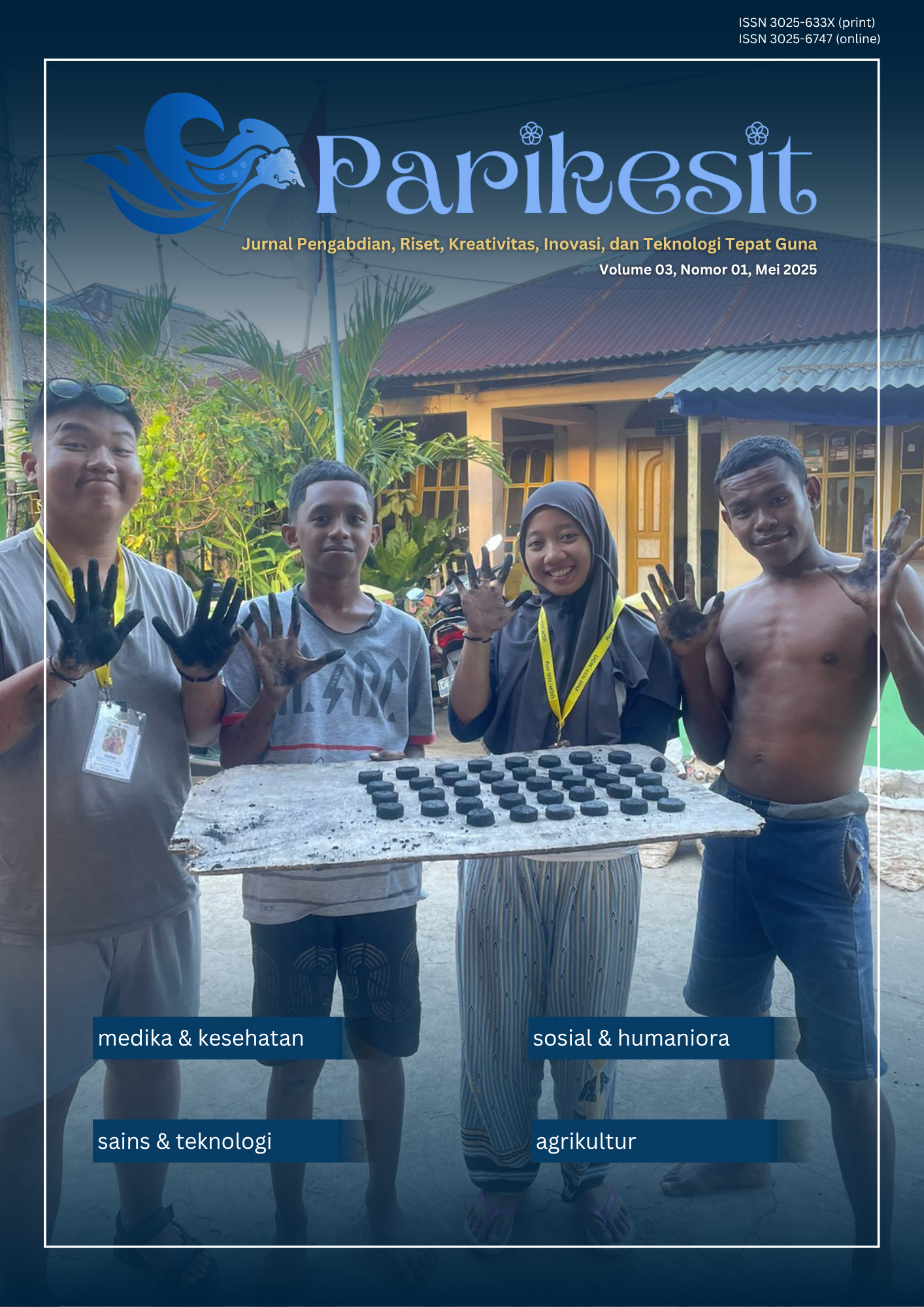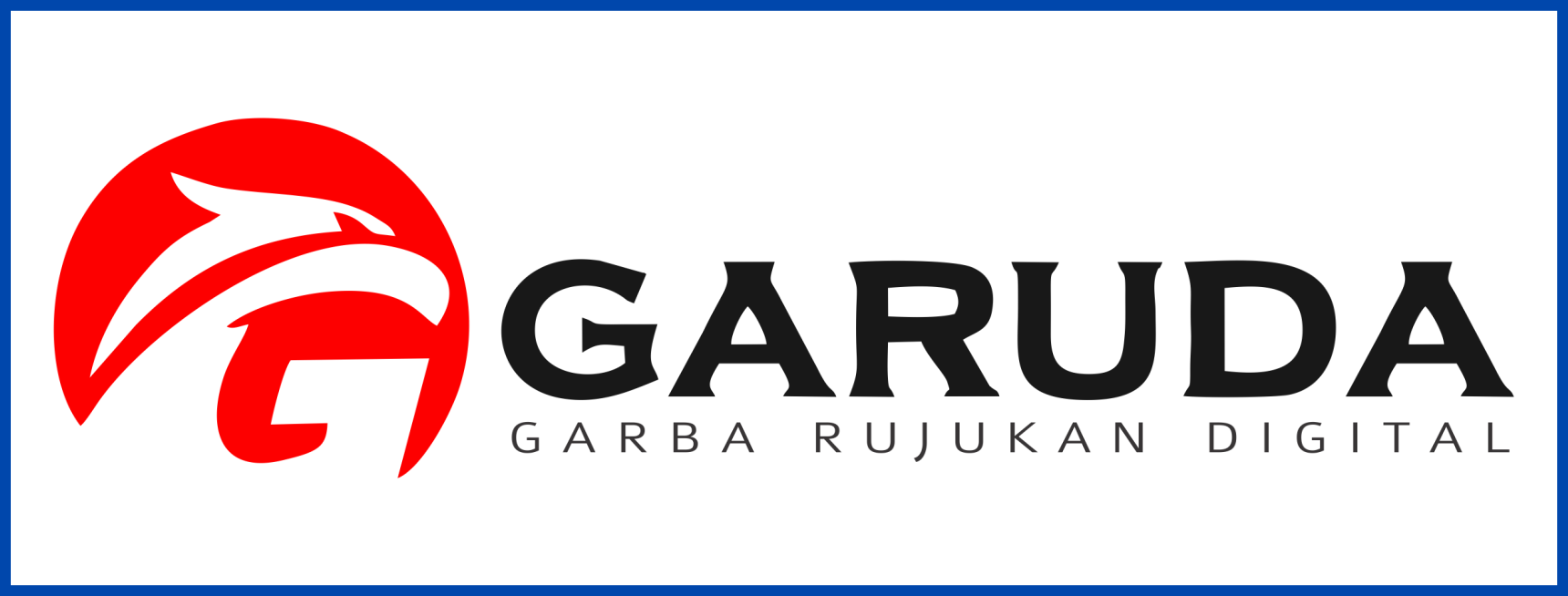Maju Lestari Waste Bank Becomes an Alternative Solution for Empowering Independent Waste Management: A Case Study of the Nuryo Setiko Clan in Sendangtirto Village, Berbah, Sleman
Abstract
Waste has become a critical issue in the Special Region of Yogyakarta (DIY). The overcapacity of the Piyungan landfill (TPA) has triggered disruptions in waste management in Yogyakarta City, Sleman Regency, and Bantul Regency. Sleman was designated as an alternative landfill site utilizing Sultanate ground land. However, this initiative, including waste management through Village-Owned Enterprises (BUMKal), has not successfully changed the public's tendency to litter. Although Sendangtirto already has attention to the waste problem, it needs the active participation of the community. In response to this challenge, the Nuryo Setiko Clan established the Maju Lestari Waste Bank in 2022 to promote self-reliant waste management behavior through the empowerment of clan members. This study employed an action research method supported by participant observation, focusing on 90% of clan members residing in Sendangtirto Village. The study used a qualitative approach and Participatory Action Research method. The results show that the Maju Lestari Waste Bank successfully provides scheduled waste weighing services, transforms behavior from littering to waste sorting, attracts customers from both the clan and the general public, and increases income through waste savings. In conclusion, the Maju Lestari Waste Bank successfully established a waste bank institution, raised awareness, and provided an effective self-reliant solution for community-level waste management.
References
Albizzati, P. F., Foster, G., Gaudillat, P., Manfredi, S., & Tonini, D. (2024). A model to assess the environmental and economic impacts of municipal waste management in Europe. Waste Management, 174(2024), 605—617.
Ardhi, M. & Afroz, R. (2021). The role of waste banks in promoting recycling behavior: A study in Indonesia. Journal of Environmental Management, 265(1).
Brydon-Miller, M., Kral, M., & Aragón, A. O. (2020). Participatory action research: International review of qualitative research, 13(2), 103—111. https://journals.sagepub.com/doi/full/10.1177/1940844720933225
Chotimah, H. C., Iswardhana, M. R., & Rizky, L. (2021). Model collaborative governance dalam pengelolaan sampah plastik laut guna mewujudkan ketahanan lingkungan maritim di Kepulauan Seribu. Jurnal Ketahanan Nasional, 27(3), 348—376. https://doi.org/10.22146/jkn.69661
Damanhuri, E., Padmi, T., & Handoko, Y. (2019). The effectiveness of waste bank systems in Indonesia: Lessons from Jakarta and Bandung. Waste Management & Research, 37(12), 1224—1232.
Eurostat. (2021). Recycling rates in the EU. European Commission.
Fitria, L. & Kadarisia, U. (2019). Analisis bibliometrik dari penelitian bank sampah untuk pengelolaan persampahan: 2008–2018. Jurnal Teknologi Lingkungan Lahan Basah, 6(2), 121—132.
Haliwela, B. M. M. & Nulhaqim, S. A. (2023), Kewirausahaan sosial dalam Bank Sampah Sabilulungan Kecamatan Tamansari Kota Bandung. Focus: Jurnal Pekerjaan Sosial, 6(1), 75—85. https://doi.org/10.24198/focus.v6i1.48823
Hamer, G. (2003). Solid waste treatment and disposal: Effects on public health and environmental safety. Biotechnology Advances, 22(1—2), 71—79. https://doi.org/10.1016/j.biotechadv.2003.08.007
Hoornweg, D. & Bhada-Tata, P. (2012). What a waste: A global review of solid waste management. World Bank.
Ismail, H., Khairuddin, A., & Raziq, M. (2020). Challenges and opportunities in the operation of community waste banks: A case study from Malaysia. Waste and Resource Management, 171(3), 190—200.
Kannan, D., Khademolqorani, S., Janatyan, S., & Alavi, S. (2024), Smart waste management 4.0: The transition from a systematic review to an integrated framework. Waste Management, 174(2024), 1—14. https://doi.org/10.1016/j.wasman.2023.08.041
Kaza, S., Yao, L., Bhada-Tata, P., & Van Woerden, F. (2018). What a waste 2.0: A global snapshot of solid waste management to 2050. World Bank Publications.
Khodijah, F. & Pharmawati, K. (2023). Evaluasi TPS 3 R di Kota Bandung: Studi kasus TPS Saling Asih II dan TPS Hikmah. Jurnal Pengelolaan Lingkungan Berkelanjutan (JPLB), 7(2), 148—164. https://doi.org/10.36813/jplb.7.2.148-164
Larasati, A. F. & Santoso, E. B. (2024), Jaringan pengelolaan sampah rumah tangga sebagai bentuk transisi ekonomi sirkular di Kota Surabaya. Jurnal Ilmu Lingkungan, 22(1), 248—257.
Lindhqvist, T. (2000). Extended producer responsibility in cleaner production: Policy principle to promote environmental improvements of product systems [Doctoral Thesis]. IIIee, Lund University.
MacDonald, C. (2012) Understanding participatory action research: A qualitative research methodology option. Canadian Journal of Action Research, 13(2), 32—50.
Medina, M. (2010). The informal recycling sector in developing countries: Organizing waste pickers to enhance their impact. Waste Management & Research, 28(6), 583—589.
Muanifah, S & Cahyani, Y. (2021) Pengelolaan bank sampah dalam menumbuhkan peluang usaha nasabah bank sampah. Scientific Journal of Reflection, 4(1), 150—159.
Puspa, N. & Suharno, P. (2017). Waste banks as a tool for women’s empowerment and environmental awareness. Journal of Community Development, 32(2), 145—156.
Rahmat, A. & Mirnawati, M. (2020). Model participatory action research dalam pemberdayaan masyarakat. Aksara: Jurnal Ilmu Pendidikan Nonformal, 6(1), 62—71. http://dx.doi.org/10.37905/aksara.6.1.62-71.2020
Sukmaniar, Saputra, W., Hermansyah, M. H., & Anggraini, P. (2023), Bank sampah sebagai upaya pengelolaan sampah perkotaan. Environmental Science Journal (ESJo): Jurnal Ilmu Lingkungan, 1(2), 61—67. https://doi.org/10.31851/esjo.v1i2.11960
Sulistiyani, A. T. (2018). Kemitraan dan model-model pemberdayaan masyarakat. Yogyakarta: Gava Media.
Thomas, V. M., Demir, M., & Saar, S. (2021). Smart waste management: Approaches and technologies for optimized waste collection and recycling. Waste Management & Research, 39(7), 805—819.
Wahfiuddin, M. H. & Riyanto. (2024). Partisipasi rumah tangga dalam program bank sampah: Studi kasus di Kota Depok. Jurnal Ilmu Lingkungan, 22(2), 464-471. https://doi.org/10.14710/jil.22.2.464-471
Wilson, D., Rodic, L., Modak, P., Soos, R., Carpintero, A., Velis, K., Iyer, M., Simonett, O. (2015). Global Waste Management Outlook; Prepared for United Nations Environment Programme (UNEP) and International Solid Waste Association (ISWA). UNEP International Environment Technology Centre (IETC).
Yasin, A. & Pratiwi, D. I. (2024). Pemberdayaan masyarakat dalam pengelolaan sampah berkelanjutan: Studi kasus di Kampung Salo Kendari. Journal of Community Service, 6(1), 1—5. https://doi.org/10.56670/jcs.v6i1.186
Yuliastuti, S., Nugroho, A. I., & Wardani, L. (2020). Integrating waste banks into municipal waste management systems: Policy implications and best practices. Sustainability, 12(14), 582.
Copyright (c) 2025 Jurnal Pengabdian, Riset, Kreativitas, Inovasi, dan Teknologi Tepat Guna

This work is licensed under a Creative Commons Attribution-ShareAlike 4.0 International License.









